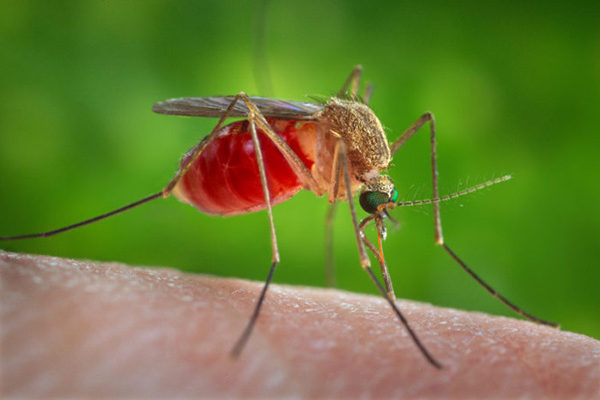Memory loss caused by West Nile virus explained
New research from the School of Medicine shows that long-term neurological problems in those with West Nile Virus may be due to the patient’s own immune system destroying parts of the neurons in the brain. It suggests that intervening in the immune response may help prevent brain damage so patients can recover.
Whatever happened to West Nile?
A study in the Nov. 2 issue of Proceedings of the National Academy of Sciences is the first to fully document the demographic impacts of West Nile virus on North American bird populations. Data from bird-banding stations shows more species were hit than suspected, and half of those have yet to recover.
Antiviral compound may protect brain from pathogens, West Nile virus study shows
Studying West Nile virus infection in mice, scientists at Washington University School of Medicine in St. Louis have shown that an antiviral compound tightens the blood-brain barrier, making it harder for the virus to invade the brain.
Deadly viruses focus of $18 million grant
In an effort to learn why some viruses such as influenza, Ebola and West Nile are so lethal, a team of U.S. researchers plans an $18.3 million comprehensive effort to model how humans respond to these viral pathogens. Participants include Washington University’s Michael Diamond, a West Nile expert.
Some brain cells are better virus fighters
Viruses often spread through the brain in patchwork
patterns, infecting some cells but missing others. New research at the School of Medicine helps explain why: Natural immune defenses that resist viral
infection are turned on in some brain cells but switched off in others. The white arrows in the picture highlight infected cells in a mouse brain.
Infections of West Nile virus could set U.S. record
West Nile virus expert Michael Diamond discusses the potentially record-setting 2012 West Nile virus infection season and describes ways to reduce chances of infection.
Scientists identify antivirus system
Viruses have led scientists at Washington University School of Medicine in St. Louis to the discovery of a security system in host cells. Viruses that cause disease in animals beat the security system millennia ago. But now that researchers are aware of it, they can explore the possibility of bringing the system back into play in the fight against diseases such as sudden acute respiratory syndrome (SARS), West Nile virus, dengue and yellow fever.
Infection-fighting antibodies made in plants as effective as costlier conventional version
The first head-to-head comparison of therapeutic monoclonal antibodies produced from plants versus the same antibodies produced from mammalian cells has shown that plant-produced antibodies can fight infection equally well. Scientists conducted the comparison as a test of the potential for treating disease in developing nations with the significantly less expensive plant-based production technique.
Bird diversity lessens human exposure to West Nile Virus
A study by WUSTL biologists shows that the more diverse a bird population is in an area, the less chance humans have of exposure to West Nile Virus.
Study: Bird diversity lessens human exposure to West Nile Virus
When the red, red robin comes bob, bob bobbin’ along, think West Nile Virus (WNV).This one’s for the birds. A study by biologists at Washington University in St. Louis shows that the more diverse a bird population is in an area, the less chance humans have of exposure to West Nile Virus (WNV). Now, let’s hear it for the birds. “The bottom line is that where there are more bird species in your backyard, you have much lower risk of contracting West Nile fever,” said Brian Allan, doctoral candidate in biology in Arts & Sciences at Washington University in St. Louis.
View More Stories


